The Yuubari King Melon, often called the Yūbari Melon, is a jewel of Japanese agriculture, cultivated only in Yūbari City, Hokkaido. Revered for its impeccable sweetness and perfectly round shape, this luxurious fruit holds tales of meticulous cultivation, cultural significance, and a prestige that few other fruits can claim. Journey with us as we delve into the captivating world of Yūbari Melons and discover why they’re so coveted in Japan and beyond. We hope you’ll be as entranced by its story as we were.
What is Yuubari melon?
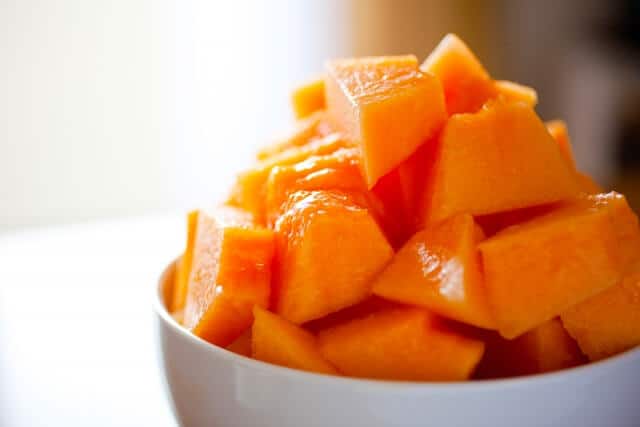
The Yuubari King Melon, native to Yūbari City, Hokkaido, Japan, is a prestigious first-generation hybrid fruit resulting from the “Earl’s Favorite” and “Burdock” cantaloupes, recognized for its flawless round shape, silky skin, and unparalleled sweetness. This melon, with its vibrant orange, uniquely smooth flesh, has a rich taste reminiscent of pineapple, making it not only a sought-after gift in Japan, symbolizing status and elegance. It also commands exorbitant prices at auctions, sometimes amounting to several million yen for impeccable pairs.
Yuubari melon History
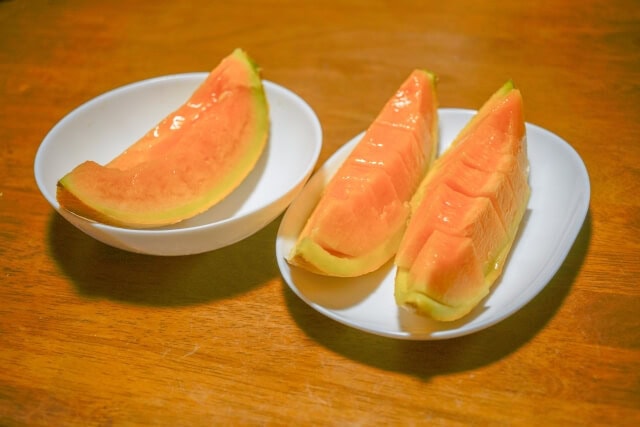
The Yuubari Melon is a highly prized and famous cantaloupe melon in Japan. Renowned for its sweet, juicy, and succulent taste, as well as its unique appearance and texture. The origin of the Yuubari Melon can be traced back to the small town of Yuubari in Hokkaido, Japan’s northernmost island.
The melon’s history dates back to the early 20th century when it was first cultivated in the region by a local farmer named Mr. Matsuoka. He experimented with crossbreeding different melon varieties to create a melon with exceptional sweetness and flavor. Through careful selection and cultivation techniques, he produced the Yuubari Melon, which gained popularity for its exceptional taste and unique characteristics.
The ideal climate and soil conditions in the Yuubari region of Hokkaido played a significant role in the melon’s development, providing the perfect environment for growing these high-quality fruits. The local farmers’ commitment to producing the best melons using traditional and meticulous farming methods also contributed to the Yuubari Melon’s reputation as a premium luxury fruit.
The Yuubari Melon became a symbol of luxury and high-quality produce in Japan as its popularity grew. The melons are often given as prestigious gifts and can fetch exorbitant prices at auctions and specialty stores. Gifting these melons is particularly popular during the summer gift-giving season in Japan. In recent years, the Yuubari Melon’s fame has extended beyond Japan’s borders, and they have been sought after by fruit enthusiasts and gourmets worldwide.
About the Name
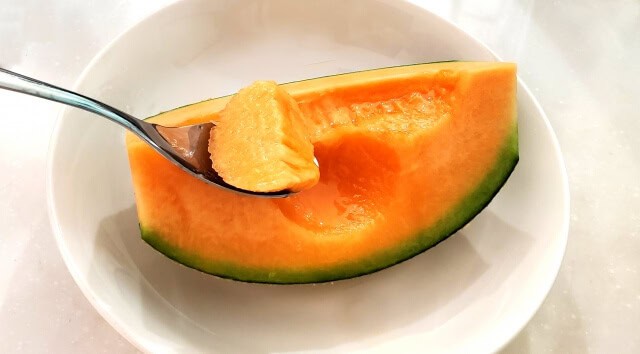
They are collected by the Yubari City Agricultural Cooperative Association (JA Yubari City), and only those that have passed strict quality inspections are labeled with the “Yubari Melon” label and shipped to protect the brand. Inspectors are selected from among the producers. Those whose appearance does not meet the standards are for processing.
Fruits in Japan
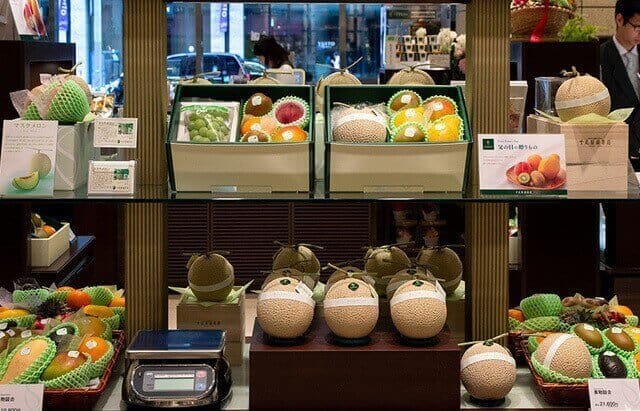
Japan is a fruit-rich country where you can get various fruits every season. There are hundreds of citrus varieties alone and more than 1,000 varieties of persimmons. Even now, the number continues to increase through enthusiastic research and efforts. If you trace the origin of fruit desserts back to the history of the fruit itself. Fruits eaten in Japan since ancient times are limited to nuts such as chestnuts, persimmons, and pears cultivated since the Jomon period. Later in the Nara period, people began to eat rice cakes made from nuts and beans as their favorite foods, and desserts were made as processed products in addition to fruits.
The melon as a special and luxurious gift-giving fruit
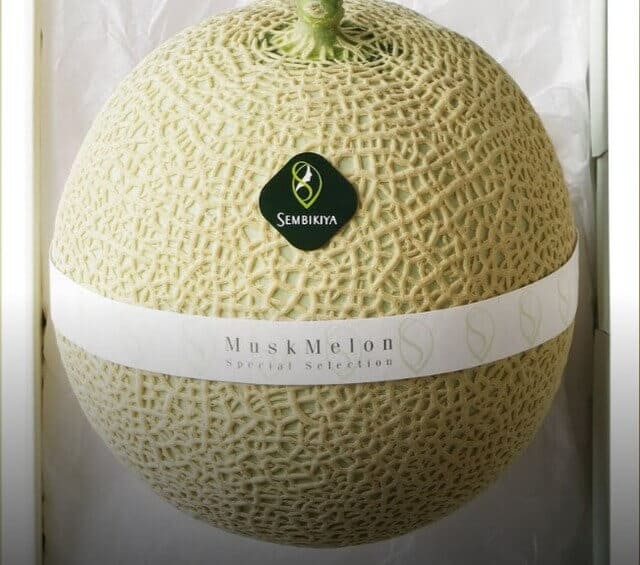
After the high economic growth after World War II, society became richer, and fruits became affordable and accessible. On the other hand, fruit culture as a luxury item has been passed down in modern life as a special gift. For example, the epitome of Sembikiya is a beautiful mask melon in a cosmetic box. Melon is a typical high-quality fruit for gifts. Among the melons, Yubari Melon, a brand melon from Yubari City in Hokkaido, is the king. The official variety called this “Yubari King,” and its beauty, rich aroma, and sweetness make it extremely popular worldwide. These fruits cost over ¥10,000 – ¥20,000 each but are popular as gifts.
Some of the special seasonal fruit in August
- Shine muscat
- Honey peach
- Golden peach
- House oranges
- Karin Grape
- Aurora 21
- Keats mango
- Japanese pear
Season of Yuubari melon
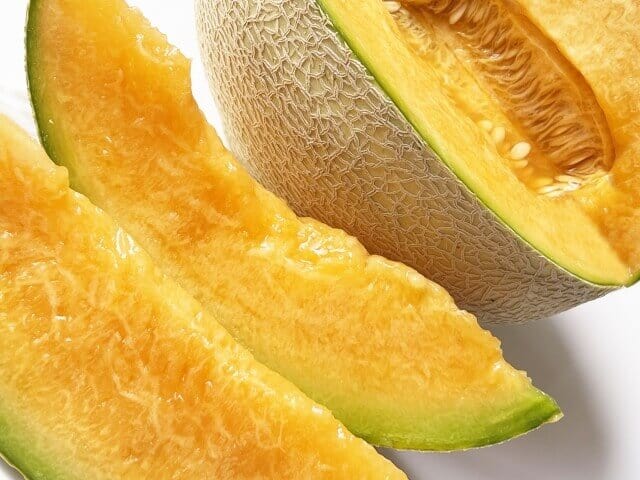
The season for Yuubari Melons in Japan typically runs from late May to early August. These months are the peak growing season for the melons in the Hokkaido region, where the city of Yuubari is located. During this time, locals harvested those melons that peak ripeness and are at their sweetest and juiciest state.
Hokkaido’s climate and growing conditions during the summer provide the ideal environment for cultivating high-quality Yuubari Melons. As a result, this period is when you will find them most readily available in the market and when they are at their best in flavor and texture.
Rank of Yuubari melon
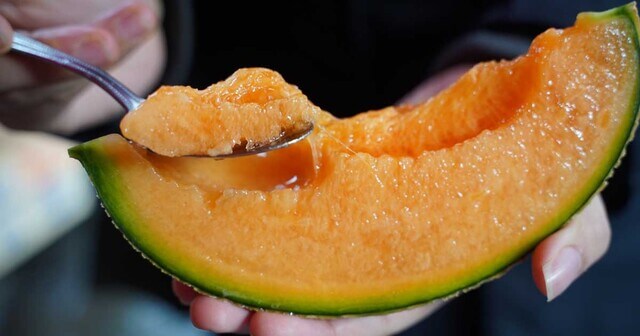
When shipping Yubari melons, stickers indicating “excellent, excellent, excellent, good” grades and “co-selection” and “individual selection” are affixed. Check the rank according to the purpose, such as for home use or gifts.
Yubari melons always have a sticker affixed to them, and if you look closely at the sticker, you will see that either “joint selection” or “individual selection” is written on the sticker. The co-selection is the one that meets the co-selection standard of the agricultural cooperative, and the sugar content and size determine the grade. In the case of Yubari melons, there are standards for sugar content: 13 degrees or more for “excellent,” 12 degrees or more for “excellent,” 11 degrees or more for “excellent,” and 10 degrees or more for “good.”
Various food that uses Yuubari melon
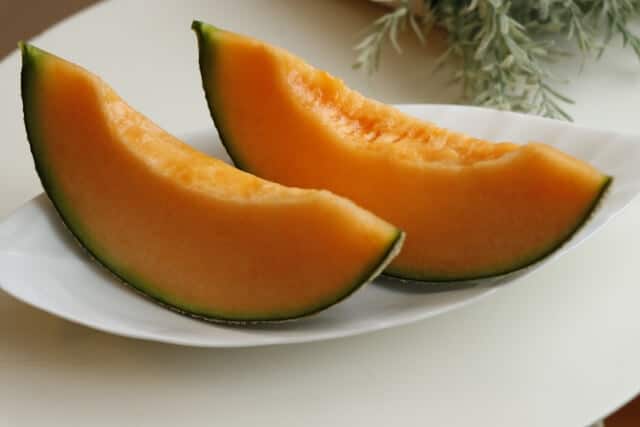
Yuubari Melon Bread
Yuubari melon bread is a sweet pastry that incorporates the flavor of Yuubari melon. The bread typically consists of a soft and fluffy outer layer, similar to regular bread, but with a creamy and luscious Yuubari melon-flavored custard filling. The custard is made using real Yuubari melon puree, giving it an authentic taste.
Yuubari Melon Ice Cream
Yuubari melon ice cream is a refreshing frozen dessert that features the distinct taste of Yuubari melon. It uses fresh Yuubari melon puree or juice blended into a creamy ice cream base. Yuubari melon ice cream is especially popular during the warmer months, offering a cool and delicious way to enjoy the melon’s taste.
Yuubari Melon Pudding
The Yuubari melon pudding is a creamy and indulgent dessert highlighting the natural sweetness of the Yuubari melon. This custard-based pudding incorporates Yuubari melon puree or essence, creating a luscious and flavorful dessert. The pudding is typically smooth and silky, and its vibrant orange color reflects the melon’s appearance.
Local Pocky Yubari Melon Flavor
Pocky is a well-known Japanese snack with thin biscuit sticks in various flavored coatings. Local Pocky Yubari Melon Flavor is a regional variation incorporating the delicious taste of Yuubari melon. The biscuit sticks are covered in a creamy and sweet Yuubari melon-flavored coating, offering a unique and enjoyable snacking experience.
Yuubari melon vs. normal melon vs. Furano melon
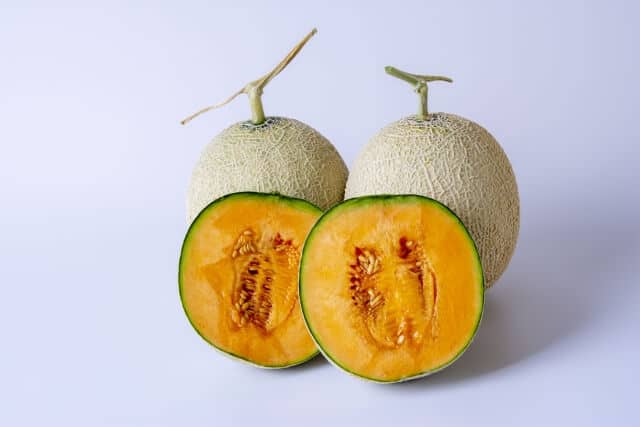
Yuubari melon, normal melon, and Furano melon are all popular varieties of melons, each offering unique characteristics and flavors. The Yuubari melon, originating from Japan, stands out for its exquisite sweetness and impeccable taste due to its meticulous cultivation and strict standards. In contrast, “normal melon” typically refers to common varieties found worldwide, which vary in taste, texture, and sweetness depending on the specific type and cultivation practices. Lastly, the Furano melon, also hailing from Japan, is prized for its juicy, refreshing, and slightly tart flavor, distinct from Yuubari and regular melons.
Yuubari melon FAQ
- How to store Yubari melon
-
Ripe ones do not last long, so chill them in the refrigerator and eat them as soon as possible. Letting it ripen for many days in a hot room may cause it to become mushy. Wrap the cut Yubari melon tightly with plastic wrap and store it in the refrigerator.
- Prices of Yuubari melon
-
The prices of Yuubari Melons in Japan can vary widely depending on their quality, size, and the seller. Generally, the prices range from a few thousand yen to tens of thousands per melon. The highest quality. Prices for these top-tier melons can reach, sometimes exceeding, ¥10,000 (roughly $100) and even up to tens of thousands of yen (hundreds of dollars). While still high quality, less perfect or smaller Yuubari Melons are more affordable. These can be found in the range of a few thousand yen each.
How to make Yuubari melon?
Choose a well-draining soil with good fertility. To improve soil structure and nutrient content, prepare the soil by adding organic matter, such as compost or well-rotted manure.
Yuubari melon seeds are typically sown indoors in pots or seedling trays about 2-3 months before the last expected frost date. Keep the soil consistently moist but not waterlogged during germination.
Once the seedlings have developed a few true leaves and the threat of frost has passed, transplant them into the greenhouse or prepared garden beds. Ensure enough spacing between plants, as Yuubari melons require ample room to grow.
As the melon vines grow, support structures such as trellises or stakes are provided to keep the plants off the ground. This helps prevent diseases and keeps the fruits clean and healthy.
Yuubari melons need regular and consistent watering, especially during dry periods. Avoid overhead watering to minimize the risk of fungal diseases; instead, water at the base of the plants.
Yuubari melon plants require pollination for fruit production. If you’re growing them in a greenhouse, you may need to hand-pollinate the flowers using a small brush or gently shake them.
Prune the melon vines to encourage airflow and remove weak or diseased growth. Additionally, thinning the fruits helps improve the quality of the remaining melons.
Regularly inspect the plants for pests and signs of disease. Use organic pest control methods whenever possible to minimize chemical exposure.
Where to buy Yuubari melon?
Yubari Akindoya (夕張あきんど屋)
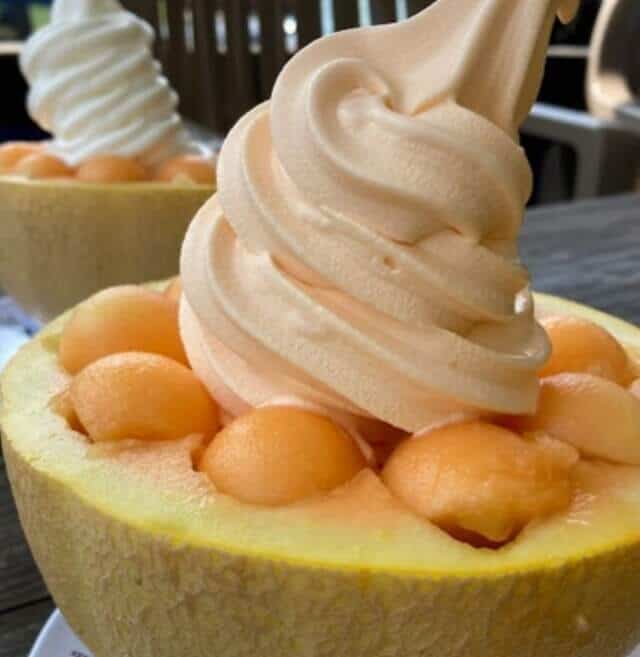
Yubari melon all-you-can-eat is popular at Melon Terrace and Melon Dome. For those who want to eat Yubari melons at a low price, the shops in the former Shimizusawa district are recommended because they are quite cheap. You can eat soft serve ice cream, cut melon, or melon parfait at the shop next door.
Yubari Merode (夕張メロード)
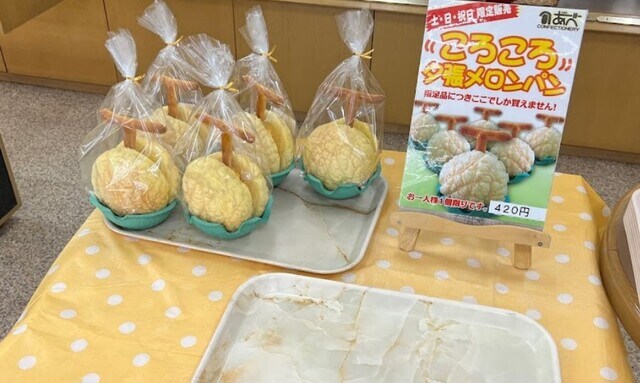
The farmer’s market sells local vegetables and offers Yubari melons during the summer. One of the delightful treats available is the limited-edition sweet “Fairy Forest” Yubari melon-flavored baumkuchen, crafted by the renowned Kitakaro store, known for its excellent selection of classic Hokkaido souvenirs. The “Fairy Forest” Yubari melon flavor consists of baumkuchen coated with delectable Yubari melon chocolate, a popular delicacy at Kitakaro.
Cafe Terrace Rila (カフェテラス リラ)
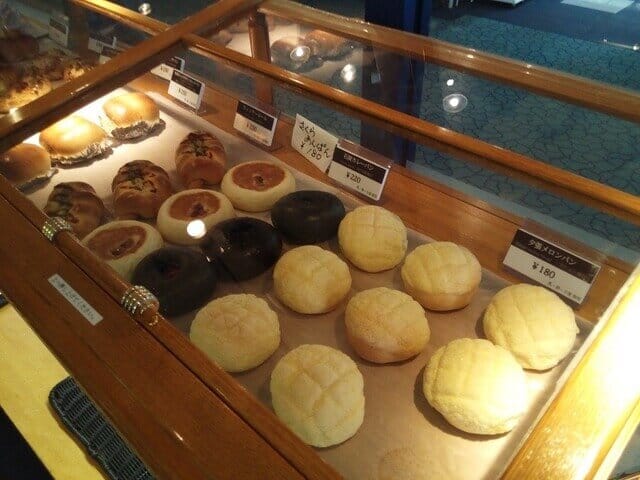
“Cafe Terrace Lira” is a cafe on the second floor of Hotel Mount Racey. Because it is close to the ski resort, it is a shop with a great view of the mountains from the window inside the shop. The famous sweets are Yubari melon bread. Inside the crispy cookie dough is a moist, orange-colored Yubari melon cream.
Final Thoughts
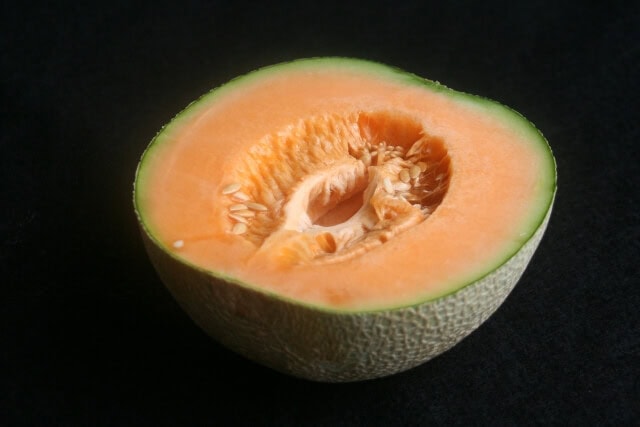
The Yuubari Melon is more than just a fruit in Japan; it reflects dedication and precision in agriculture. As we wrap up this article, we hope you’ve learned something valuable about this unique melon from Hokkaido. Thanks for reading, and we trust you’re leaving with a clearer understanding of its significance.
You can check some Japanese snacks that we know you would like to try too.
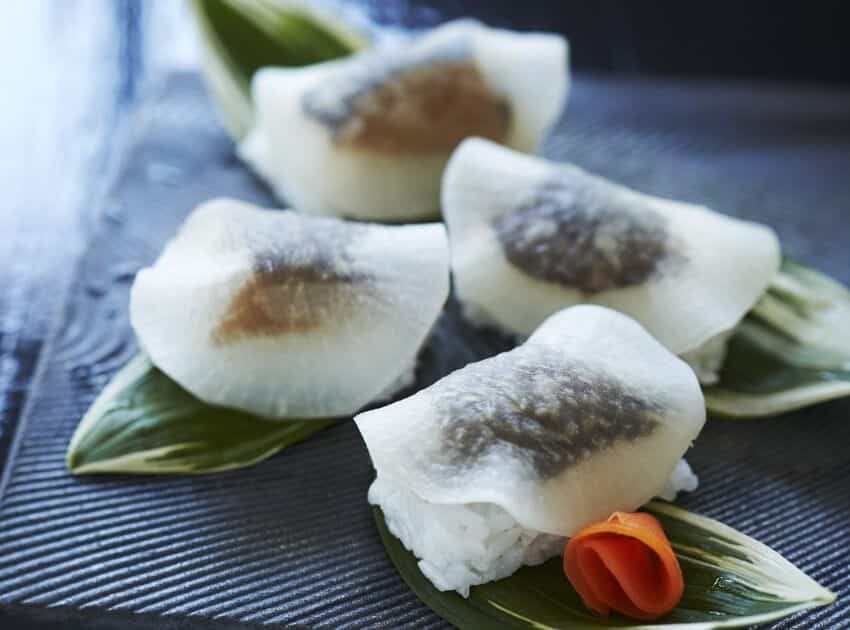
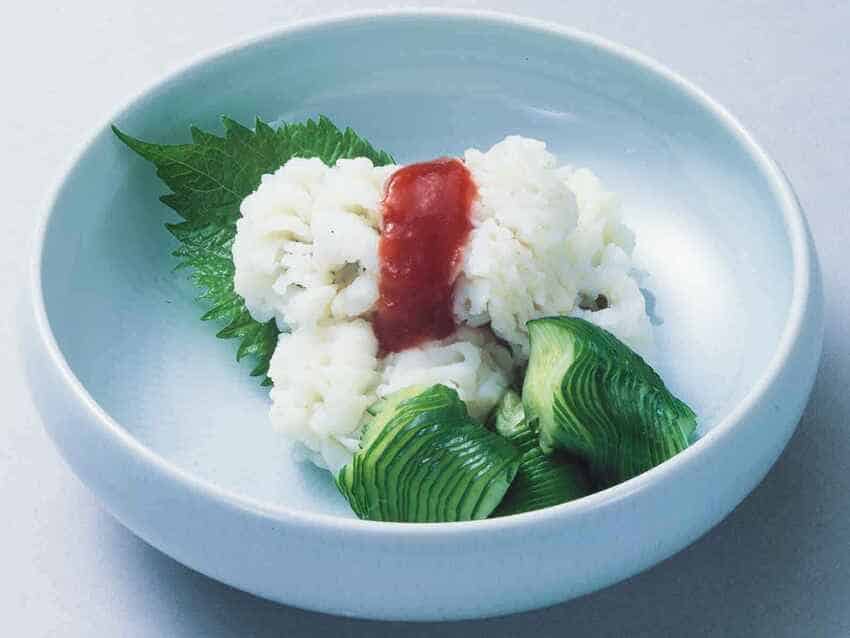
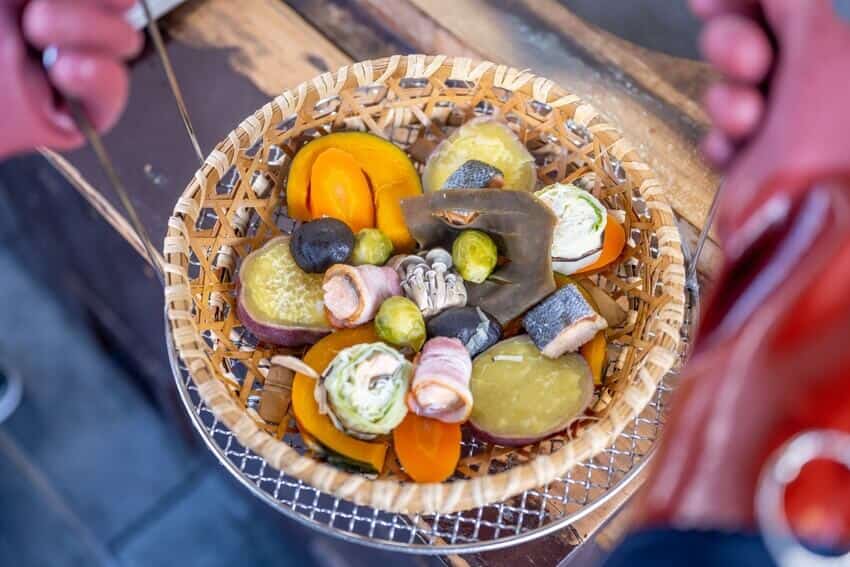
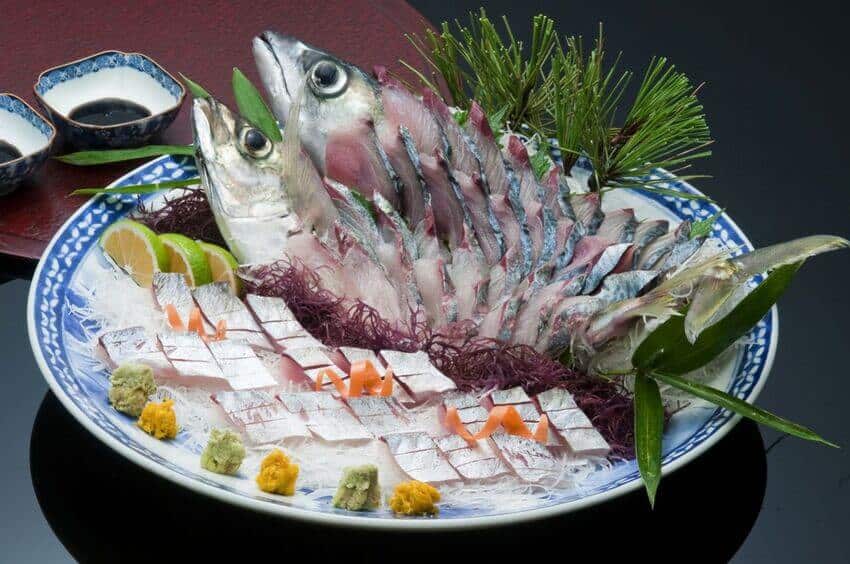
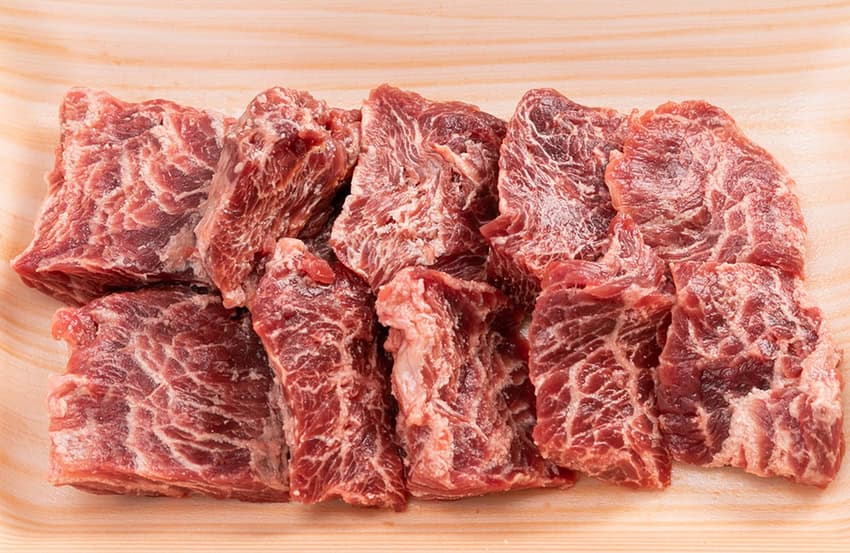

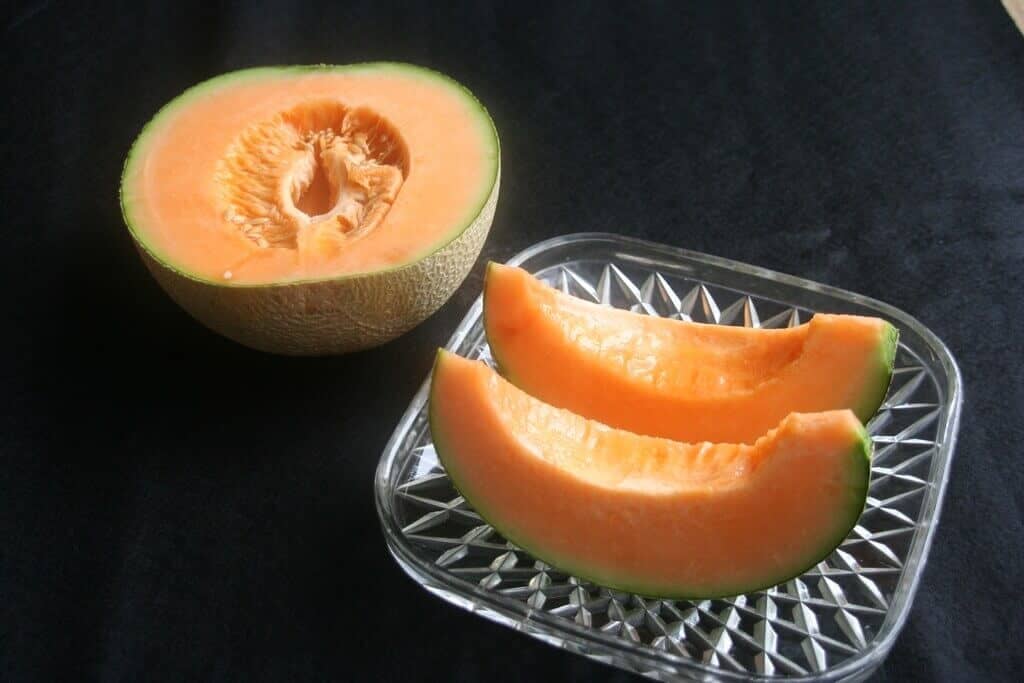
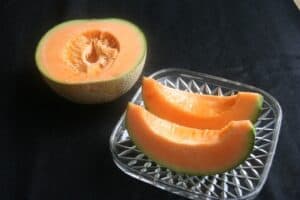
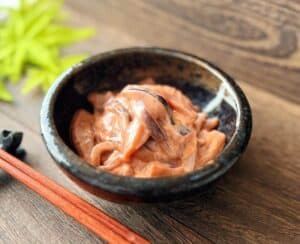
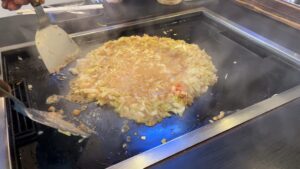
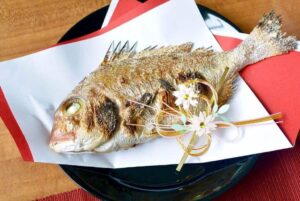
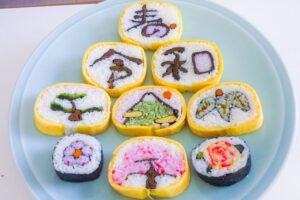
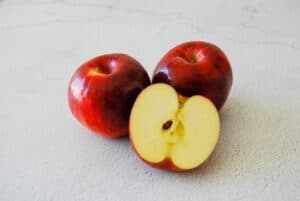
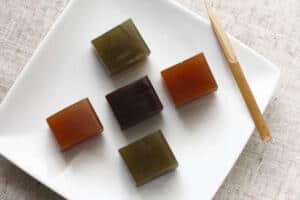
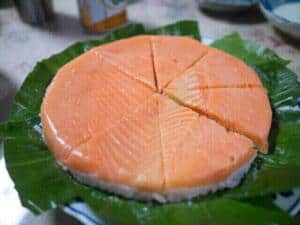
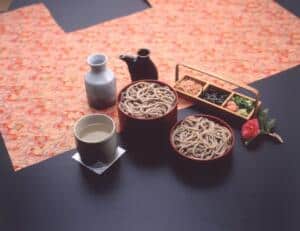
Comments